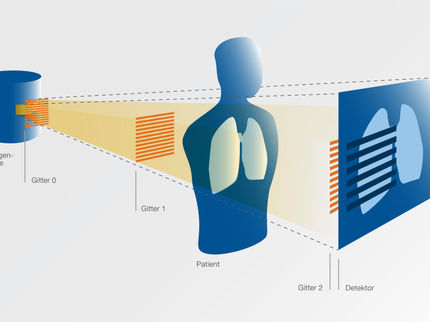Researchers develop first diagnostic test for novel coronavirus in China
Researchers from the German Center for Infection Research (DZIF) at Charité - Universitätsmedizin Berlin have developed a new laboratory assay to detect the novel Chinese coronavirus. The assay protocol has now been published by WHO as a guideline for diagnostic detection. The new assay enables suspected cases to be tested quickly.

These are coronaviruses (colored transmission electron microscopy image).
cdc/Dr. Fred Murphy & Sylvia Whitfield
The coronavirus, which first emerged in Wuhan, China, and can cause severe pneumonia, can now be detected in the laboratory. Developed by a group of DZIF researchers working under the leadership of Prof. Dr. Christian Drosten, Director of the Institute of Virology on Campus Charité Mitte, the world's first diagnostic test for the coronavirus has now been made publicly available. Following its online publication by the WHO, the test protocol will now serve as a guideline for laboratories. An international consortium is currently conducting a joint evaluation study.
"Now that this diagnostic test is widely available, I expect that it won't be long before we are able to reliably diagnose suspected cases. This will also help scientists understand whether the virus is capable of spreading from human to human," explains Prof. Drosten. He adds: "This is an important step in our fight against this new virus."
Background Previous successes recorded by Prof. Drosten and his research groups include the development of novel Zika virus tests and the development of a standard test for the MERS (Middle East Respiratory Syndrome) pathogen, which is now being used worldwide. A BIH Professor and one the co-discoverers of the SARS (Severe Acute Respiratory Syndrome) virus in 2003, Prof. Drosten was also responsible for developing and making available the first diagnostic test for SARS. The next few years will see members of the DZIF's 'Virus detection and preparedness' group at Charité continue their efforts to increase our preparedness for the emergence of new viruses.
Most read news
Organizations
Other news from the department science

Get the analytics and lab tech industry in your inbox
By submitting this form you agree that LUMITOS AG will send you the newsletter(s) selected above by email. Your data will not be passed on to third parties. Your data will be stored and processed in accordance with our data protection regulations. LUMITOS may contact you by email for the purpose of advertising or market and opinion surveys. You can revoke your consent at any time without giving reasons to LUMITOS AG, Ernst-Augustin-Str. 2, 12489 Berlin, Germany or by e-mail at revoke@lumitos.com with effect for the future. In addition, each email contains a link to unsubscribe from the corresponding newsletter.





















































